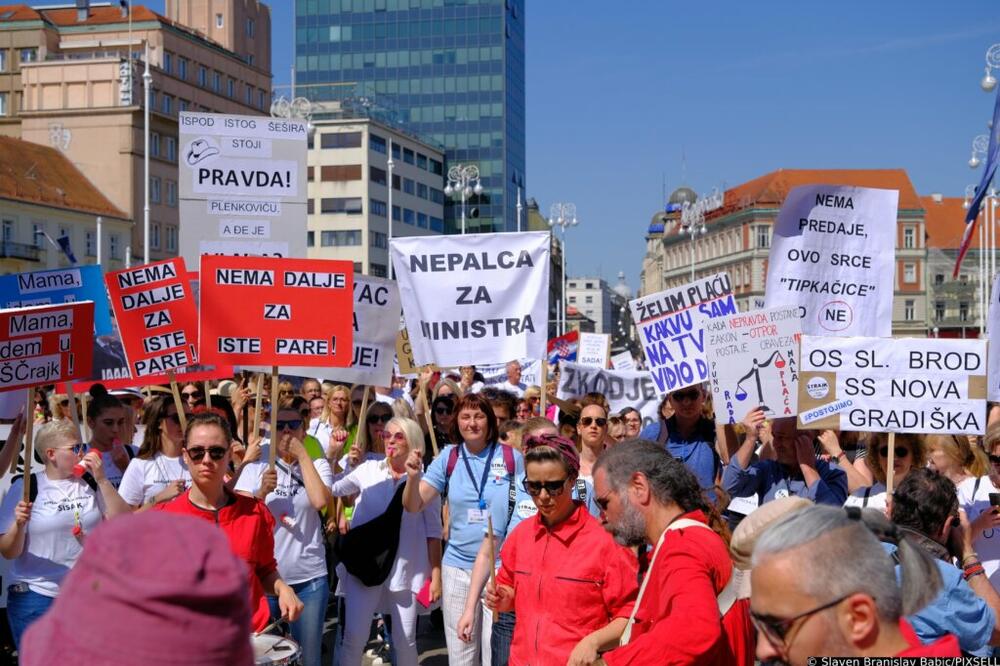The first one said: "And what, those recorders and others like that... they still want to strike, don't they"? Another added: "Yes, the slaves are protesting about their wages." Then the first one again: "Huh, the slaves would like to be given 400 euros more..." This was how the conversation between the two went, which stung my ears when I was walking on the sidewalk a few days ago, right next to the Birtijas standing table on which the persons in question were leaning on their elbows.
Clearly, the words "slaves" and "slaves" that they used for judicial officers and employees - miserably paid people who are an unavoidable part of an essentially important system, and out of existential desperation they have been trying to appease the rulers in the political elite by striking for weeks to raise their salaries a level that would be as decent as possible considering the price of naked life in Croatia - they were the reason why I got hooked on the mentioned dialogue and decided to devote an entry to it.
I paused briefly and from a few meters distance discreetly observed two relaxed friends in, I would say, their mid-fifties, while they label a part of the local administrative staff with laconic contempt, using the language of primitive cynicism. I am walking on a dangerous edge as I write about it with anger, I am in danger of falling into the trap of unproductive moralizing psychologizing.
And I would certainly end up in that hole if I continued to describe those characters to you. That's why I won't, that's where I stop. After all, imagine them yourself. It is not difficult, they are very typical considering the cross-section of values of the historical and social time in which we have been living for the last few decades.
More important than that unimportant duo is the language that spoke through them. We know about discourse that it is never empty, that is, neutral, but is always interwoven with an abundance of symptoms of ideology. Just as it is value-shaped by socio-political contexts, power relations, superiorities and subordinations, games of inclusion and exclusion from the social order of reality.
A situation, albeit the same apparently benign and micro-scale one, in which the classical administrative staff - in fact the vast majority, and not coincidentally, women workers who in any more decent and socially just country would be carefree tucked into the typical bourgeois middle-class stratum - are called slaves, it is a brutal image and merciless symbolism of the completed post-socialist transition.
It is real, but only one of many, sum summarum dry stories about the ten-year membership in the EU, the war and the slow, painful defeat, the struggle with all the adversities and successes in overcoming the obstacles along the way, which are abundantly served to us in the media these days.
But the real version of that story, and it coincided with the mentioned EU anniversary, has been living in the local offices of the judicial support staff for the last few weeks. In that cemetery of defeated existences, all those practically outside the "heavenly" circle with twelve golden stars on a sky blue background.
Bonus video:




